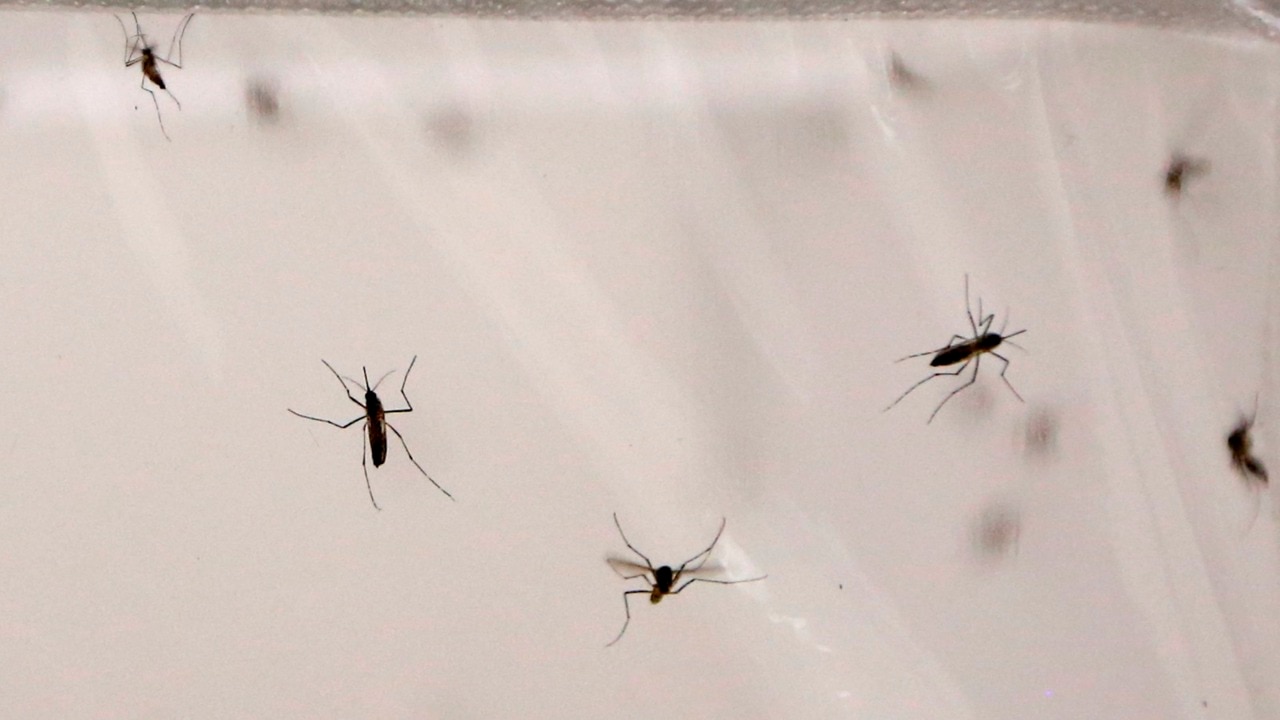Grandfather loses memory after contracting Japanese encephalitis virus
Garry Taylor didn’t realise he had been bitten when he suddenly fell unwell and was rushed to hospital days after a camping trip.

Illness
Don't miss out on the headlines from Illness. Followed categories will be added to My News.
A grandfather temporarily lost his memory after getting bitten by an insect.
Garry Taylor, 71, didn’t realise he had been bitten by a mosquito when he suddenly fell unwell and was rushed to hospital days after a camping trip along the Murray River last February.
Mr Taylor, from Sunnydale, 100km east of Adelaide, woke up four or five days later “with no memory of anything, (not even) of the ambulance trip”.
He is now encouraging others to get vaccinated for Japanese encephalitis virus (JEV), which has left him with long-term memory issues.

“That’s what this disease does. It melts your brain. So if you get it bad, you’re done for,” he told 7News.
“My brain doesn’t work the way it used to. I used to be able to build anything ... I went from being fit and being able to do anything to laying in bed not being able to move properly.”
Japanese encephalitis (JE) is a viral infection that affects the brain. It is caused by the Japanese encephalitis virus (JEV), which is transmitted to humans through the bite of an infected mosquito.
The disease is most commonly found in rural areas of Asia, but cases have also been reported in other parts of the world.
Symptoms of JE include fever, headache, nausea, vomiting, and fatigue. In severe cases, the infection can lead to brain swelling and permanent neurological damage.
The risk of death is highest in children under the age of 15. There is no specific treatment for JE, and care is supportive.

According to Professor Nicola Spurrier, the Chief Public Health Officer of South Australia, it is crucial for individuals to safeguard themselves from illnesses transmitted by mosquitoes, especially with the ongoing floods.
She advised individuals planning to be near the River Murray and Lower Lakes to be particularly cautious, specifically during the hours of dusk and dawn, when mosquitoes are most active.
Professor Spurrier suggests using insect repellents containing DEET, picaridin or oil of lemon eucalyptus while spending time outdoors.
Additionally, simple modifications such as cleaning up standing water around the house and installing mosquito-proof mesh on doors and windows can aid in reducing the mosquito population.
Originally published as Grandfather loses memory after contracting Japanese encephalitis virus


